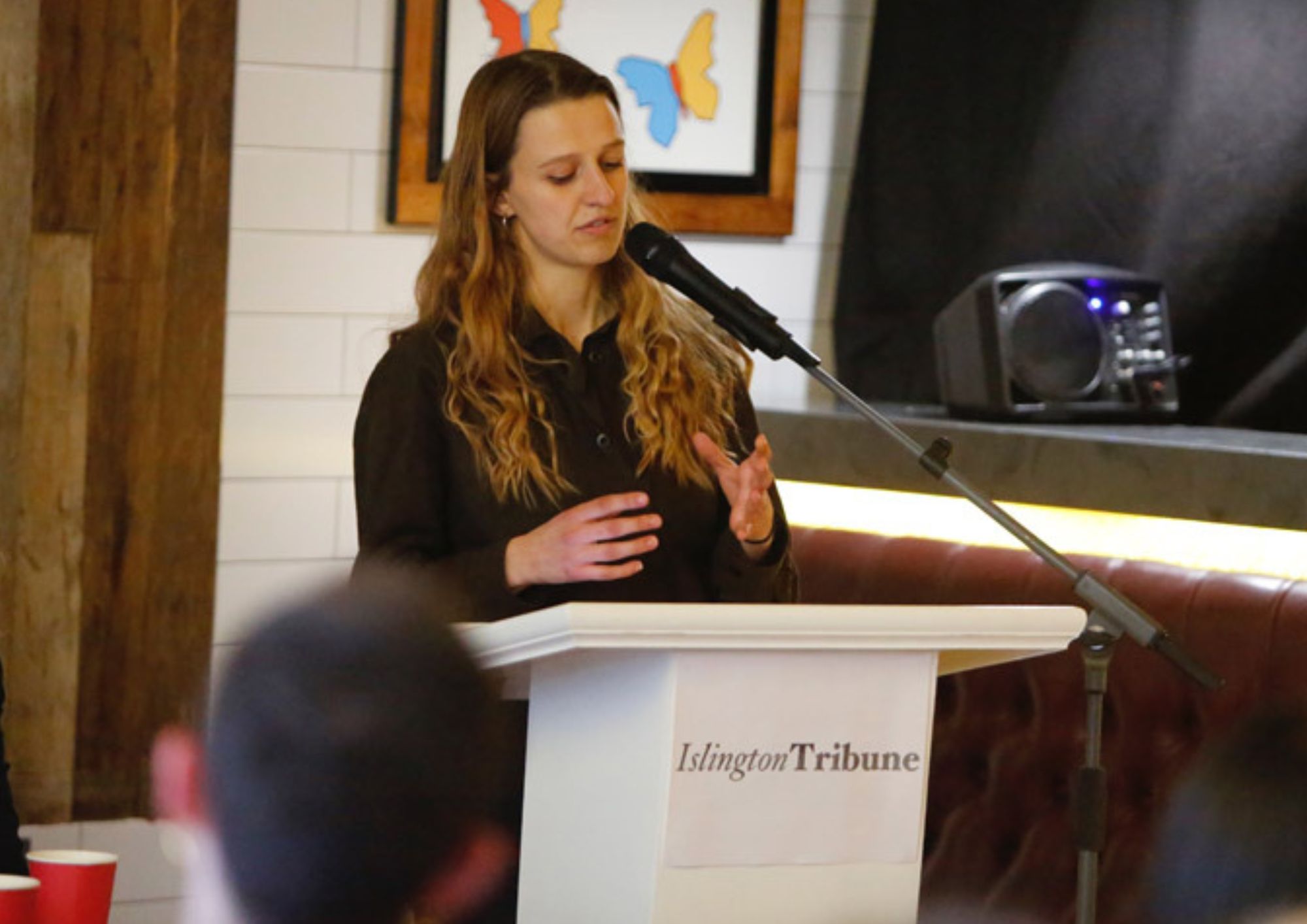Not just one day: Why not every woman feels included in the fight for equality
NEW JOURNAL COMMENT: Having women in positions of power in a system that continues to perpetuate social and economic violence against less fortunate women does not constitute real progress
Friday, 10th March 2023 — By Anna Lamche

Anna Lamche speaking at conference our newspaper organised on violence against women and girls
ON International Women’s Day, social media is awash with corporate messages posted by brands encouraging us to “celebrate diversity and empower women” or “celebrate the beauty of diversity, the power of inclusion”.
Such messaging is inevitable, and usually well-intentioned – but it is also indicative of the discourse surrounding the fight for women’s equality which so often feels divorced from the key factor shaping many women’s lives: class.
The recent report published by the Camden Women’s Forum (CWF) makes for grim reading.
The commission responsible for the report spoke to 100 local women and returned with stories of mothers losing weight because they can only afford to feed their children; women unable to return to work because of the prohibitive costs of childcare; and women working punishing, insecure jobs through the night so they can see their children off to school in the morning.
A decade of austerity has hurt us all, but the dismantling of the welfare system constitutes a particularly sustained assault on single mothers.
We have witnessed what Bell Hooks, the feminist theorist, calls the “feminisation of poverty” as women – particularly women of colour and working-class women – disproportionately shoulder the burden of keeping their families warm, fed and clothed.
A recent study by the Living Wage Foundation found women are more likely than men to be paid below the real living wage, and more likely to be working insecure zero-hours contracts.
For all the progress that has been made, it is clear there are still structural barriers in play that are holding women back.
Speaking at a meeting this week, one woman who contributed to Camden Women’s Forum report described the difficulty of navigating the benefits system and the feeling of creeping criminalisation that accompanies poverty.
“[On Universal Credit], every action feels like you’re doing something wrong or criminal,” she said.
Britain has long understood poverty as the product of individual moral failure rather than the symptom of a dysfunctional society.
This attitude is a thread that runs from the “undeserving poor” of Victorian Britain to Margaret Thatcher’s insistence that “poverty is not material but behavioural,” to New Labour’s fight against “problem families”.
Against this backdrop, gender diversity is often presented as a supposed “fix” for the entrenched inequality faced by many women.
“When you ask them for more equality, what they give you is more diversity,” American academic Walter Benn Michaels notes.
“But a diversified elite is not made any the less elite by its diversity.”
As journalist Kenan Malik observes, “in the shift from ‘equality’ to ‘diversity,’ the most marginalised have often been forgotten”.
Having women in positions of power in a system that continues to perpetuate social and economic violence against less fortunate women does not constitute real progress.
Class must feature in any meaningful discussion about women’s rights, and true diversity and empowerment can only be achieved when it is accompanied by wide-reaching social and economic change.
In Camden, that starts with offering women better pay in secure, flexible work, as well as education and training opportunities and affordable childcare and housing.
Anna Lamche is the assistant editor of the Camden New Journal